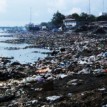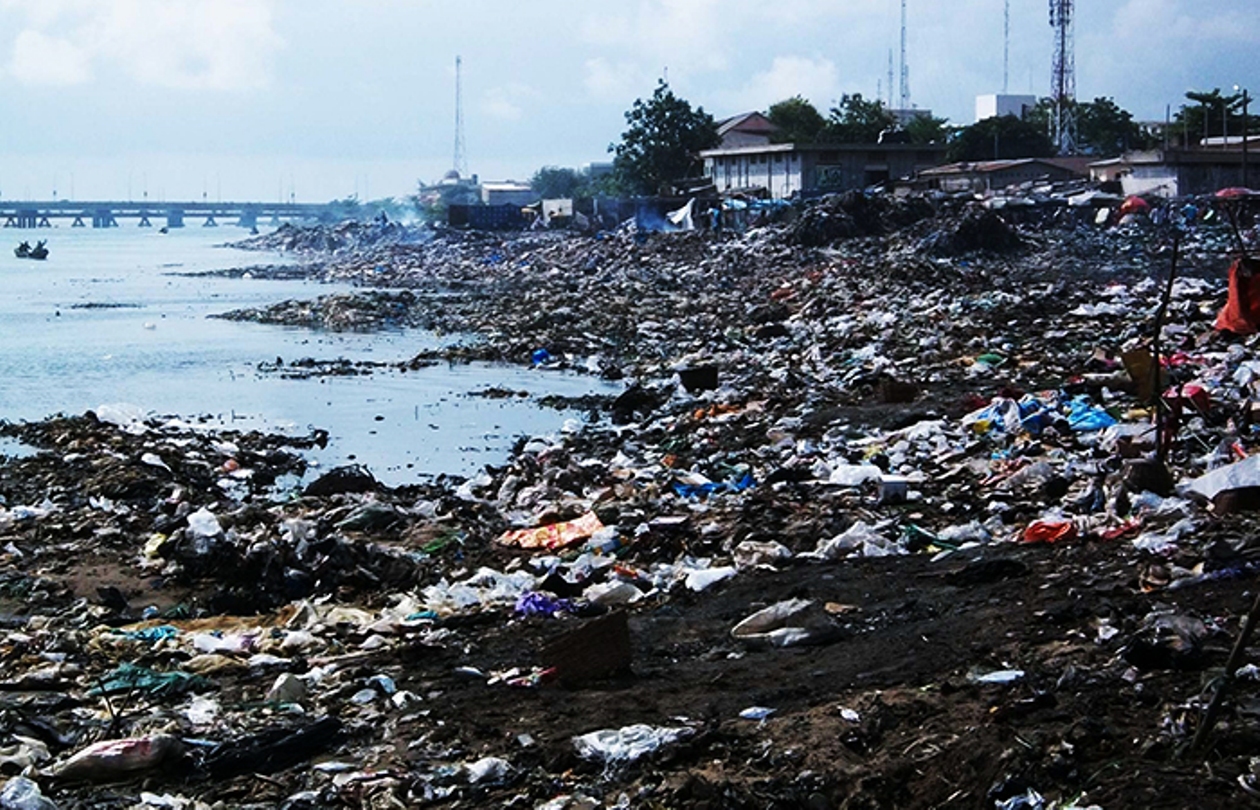

By Godwin Oritse
The importance of aquatic animals and plants can never be over emphasised, giving their ecological functions for human survival. While aquatic wildlife are important sources of food , energy, jobs and protection against food shortages and global climate change, the health of submerged aquatic vegetation is an important environmental indicator of overall ocean and estuary health.
Unfortunately, these benefits are being hampered by the volume of plastic wastes on the nation’s waterways. The presence of plastics in waterways has become a major pollutant of the waters and the trend has become dangerous to both human and aquatic animals, which survival heavily depend on the waterways and oceans.
READ ALSONiger State Government relocates IDPs
To address this worrisome development, the Nigerian Liquefied Natural Gas shipping arm, NLNG Ship Management Limited NSML’s has set the ball rolling by launching “Clean Water Initiative”, a campaign that is part of the firm’s Corporate Social Responsibility to highlight the effects of plastics, debris and other marine litters on the waterways in Nigeria.
The initiative focuses on actions, advocacy and public awareness campaign, aimed at tackling the devastating effects of plastics, debris , litters on the aquatic ecosystem; and their overall impact on the global maritime environment.
It is also an integral part of NSML’s corporate Brand Management planned activities.
The initial scope of coverage will be NSML’s primary areas of operation which include the NLNG Terminal in Bonny, as well as its Jetties in Rivers State.
The plan is to ensure the proper clean-up and maintenance of the waterways at these AOPs; whilst extending the initiative in subsequent years to the inland waterways in Rivers State and subsequently the national space.
The initiative was launched at the occasion to celebrate the IMO 2020 World Maritime Day, in September 2020, in line with the theme of the event – ‘Sustainable Shipping for a Sustainable Planet’.
As first step, the NSML Terminal Services team kick-started the campaign by organising a clean-up exercise of the NLNG Bonny waterfront, a move that was adjudged a huge success.
Not done, Management plans to further implement and expand the ideals of this campaign in the coming years as part of the company’s overall CSR, and Stakeholders Engagement plan; with the requisite approval and guidance of the Board of Directors.
The volume of plastic wastes on the nation’s waterways is amazing just as it is appalling, and to rid the waterways of this plastic waste is not the duty of one person or organization.
The initiative if well harnessed will help to militate against the United Nation projection of having more plastics in the oceans than fishes by the year 2050.
The collaboration between the NLNG and the Nigerian Maritime Administration and Safety Agency, NIMASA to tackle the menace of plastic waste in the nation’s waters can be described as a right step in the right direction.
It is expected that other stakeholders join the train to clean up the water ways and also sensitize Nigerians to stop throwing such wastes in the gutters because once these materials get into the gutters and drainages, they eventually find their way back, into the water ways and oceans thereby, frustrating initial efforts of clearing them off the waterways.
Record has it that Nigeria generates 32 million tonnes of waste per year, out of which 2.5 million tonnes is plastic waste.
The country’s disposal, recycling and waste management system is very inefficient, dealing with both plastic and non-plastic waste, most of which (70%) ends up in landfills, sewers, beaches and water bodies.
A report on the danger of plastic to aquatic life stated that when fishes come to the wetland to breed, these waste blocks their movement and eventually lead to their death.
Part of the report reads; “When fish come to the wetlands to breed because the wetlands are the maternal wing for fish, plastics blocks them and they get inside the plastic and eventually die.”
‘‘Most times, the fishes and other organisms confuse these plastics for food and end up consuming them, leading to indigestion and often resulting in death. When plastics disintegrate, they become micro-plastics which organisms can consume.
‘‘Fish often become entangled in ghost ropes and nets, which impedes their movement and ability to acquire food, without which, they die. Additionally, the plastic containers cause suffocation when fish and other organisms are trapped inside.
‘‘When fishes reach the river mouths and wetlands, the oil forms a thin film on top of the water, stopping oxygen as well as the sun’s rays from penetrating the water, thus affecting the growth of fish species and below, he notes.
Fixing the plastic waste challenge
Determined to address this challenge, the NGLNG-NSML has commenced the mobilization of coastal communities to join the cleanup campaign to carry out clean-up activities along the shores of the water ways across the country, as well as sensitization on proper waste disposal along the coast lines.
Besides the cleanup of the water ways, the plastic waste can be recycled for reuse, a development that is fast becoming a big business in Nigeria.
In a statement by the Managing Director , NLGN Ship Management Limited, Mr. Abdulkadir , he described the initiative as vigorously pursued through its Awareness, Advocacy and Action, AAA.
These three campaign strategies according to Ahmed , is meant to galvanize support from every stakeholder in the marine space to key into the initiative and make the marine environment safe not only for the aquatic lives but also for human.
In Nigeria, the Federal Executive Council (FEC) has just validated a new policy to improve plastic waste management. This strategy is validated, just three months after the approval of a law on solid waste management in West African country.
Recall that a law on plastic waste is being proposed and will soon come into force in Nigeria, it is hoped that the new legislation initiated by the Federal Ministry of Environment, aims at improving plastic waste management in the country.
Nigeria’s plastic waste law is also expected to bolster financial institutions that already support many recycling projects in the country.
The post NSML’s Clean Water Initiative, a rescue mission to save aquatic life appeared first on Vanguard News.











![[Music] Accestor ft JoeXclusive - slow Mo (prod. Bayologic Beatz)](https://1.bp.blogspot.com/-NvAchIl5Evo/YJT8-5P2eSI/AAAAAAAAP44/hfel2VsOsQQTWuoE1wgJ_xHcSDSwMDUHQCNcBGAsYHQ/w680/IMG-20210507-WA0041.jpg)









0 Comments
Advertise your business here at cheap rate and get large audience to your market. Call/Msg Teemikemedia: 07060733664 to get started.